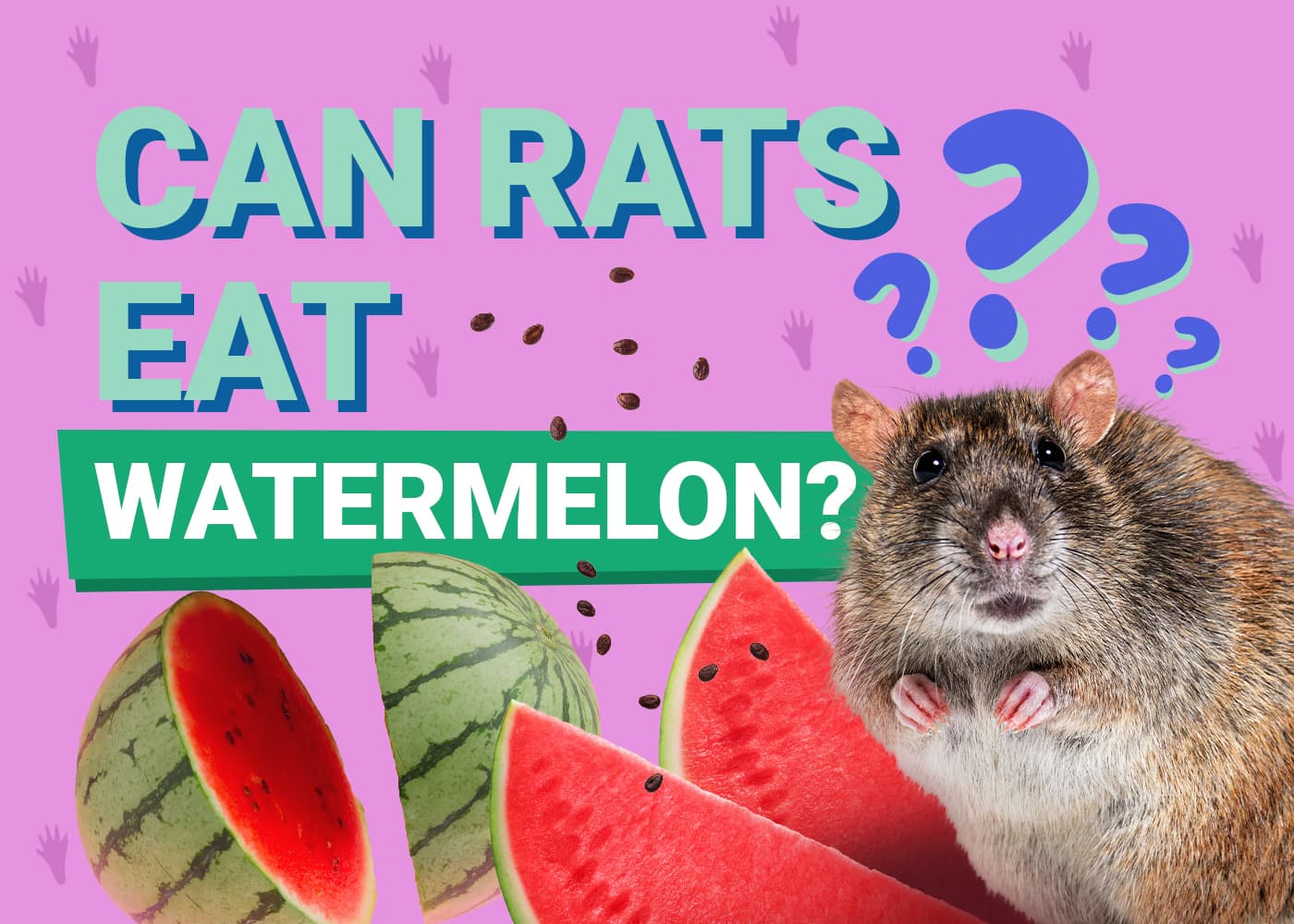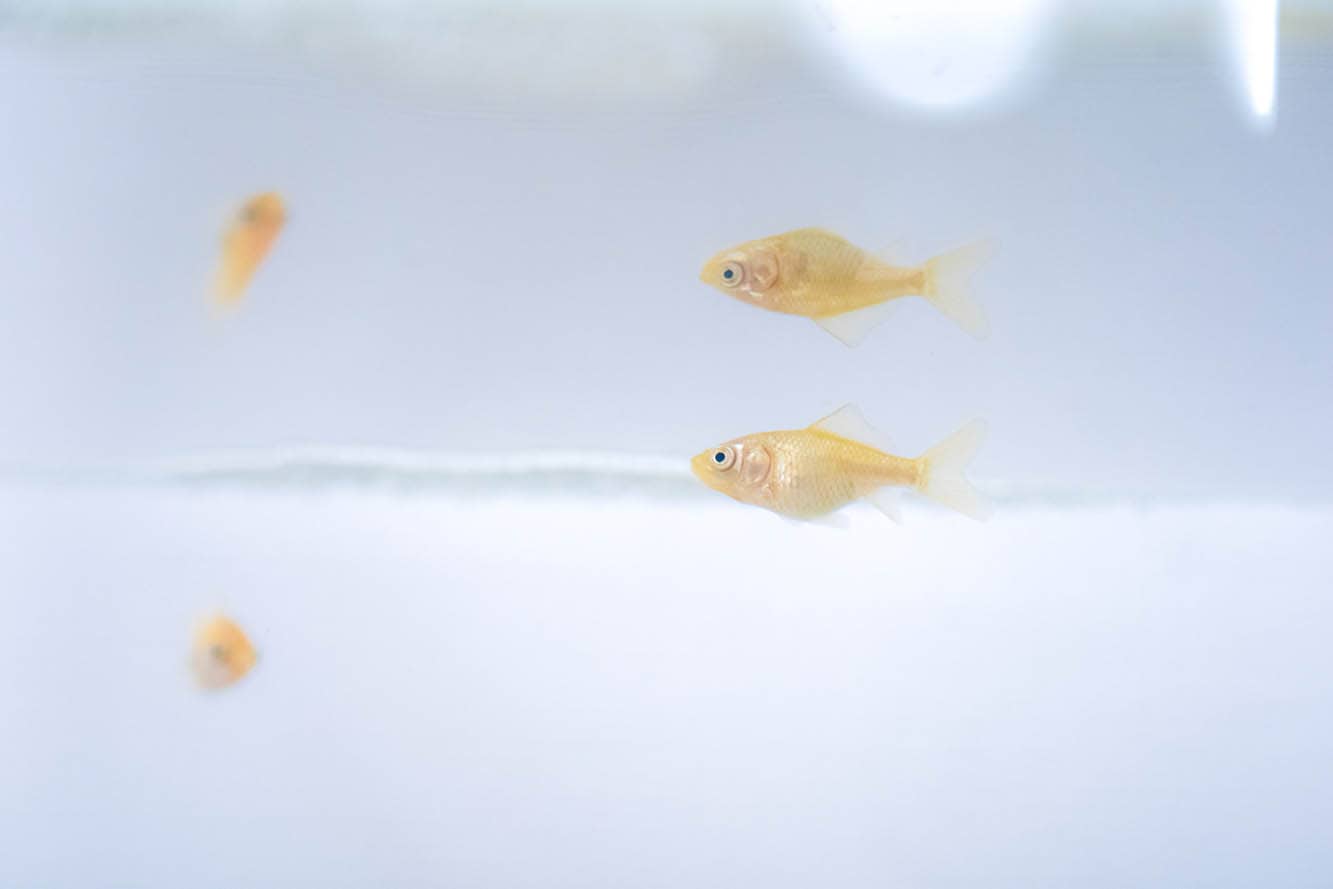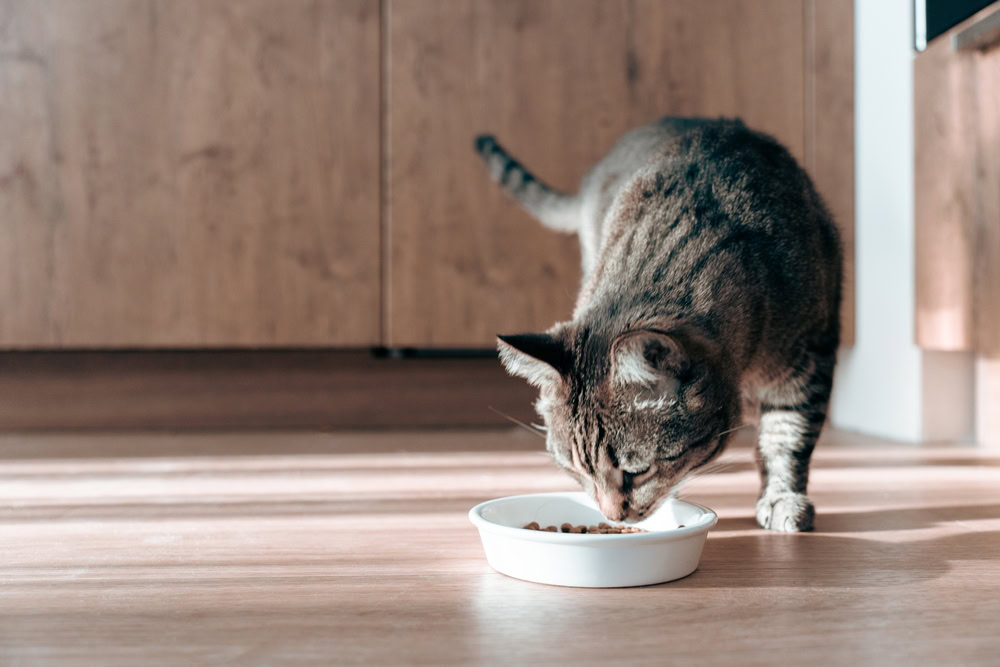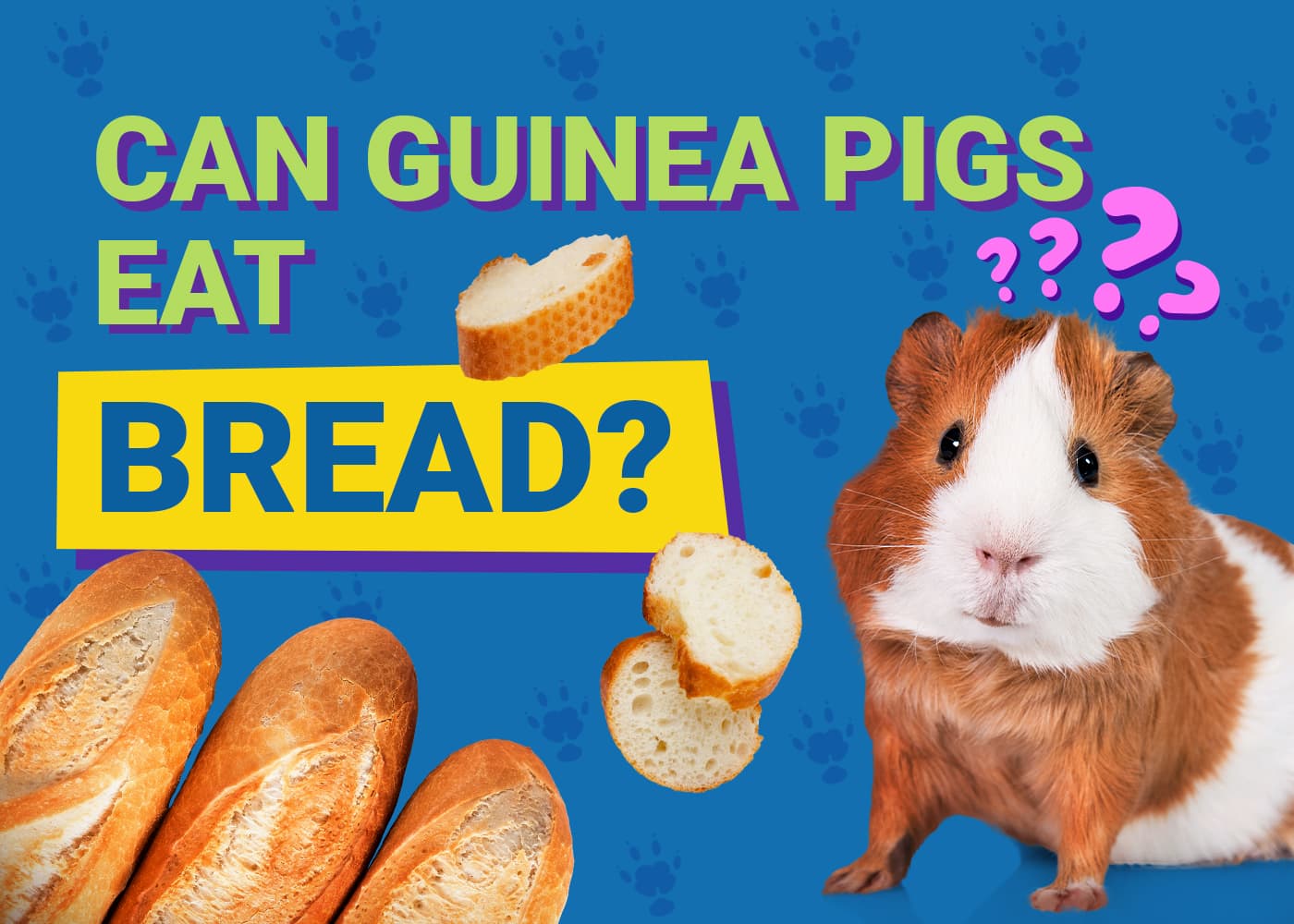VET APPROVED

The information is current and up-to-date in accordance with the latest veterinarian research.
Learn more »Click to Skip Ahead
In the world of exotic rodent pets, rats are quite popular. Yet, much information about their proper care remains somewhat dubious for their owners. Many people believe that since wild rats can eat pretty much anything, the same would apply to pet rats. As a result, they seem to share many of their food items with their pet rats.
Fruits are a common item in kitchens and pantries all over the world. They’re often marketed as healthy foods for humans and as such, are frequently considered by pet owners to be healthy for their pets as well. If you’re wondering whether watermelon is safe for your rat, the good news is that watermelon is safe for pet rats; however, it’s not a healthy food for them.
Read on as we explain a pet rat’s nutrition in more detail and explore how watermelon (and other fruits) may or may not fit into their diet.

Fruits & Pet Rats
Though most pet rat owners do seem to provide them with appropriate housing, research indicates that aspects about their long-term welfare are not well understood.1 Chiefly, it seems most owners inadvertently feed them the wrong food items or expose them to predators (such as cats or dogs), which causes a great deal of physiological stress for them and impacts their long term health.
Fruits are often marketed as healthy foods for us, and most people seem to enjoy fruits for their sweetness and taste. Many fruits are also high in vitamin C, a vitamin which is essential for humans because we lack the inability to make this vitamin ourselves. This makes them very appealing to us. The nutritional profiles of pet rats are not the same as ours though. Let’s explore these in more detail.
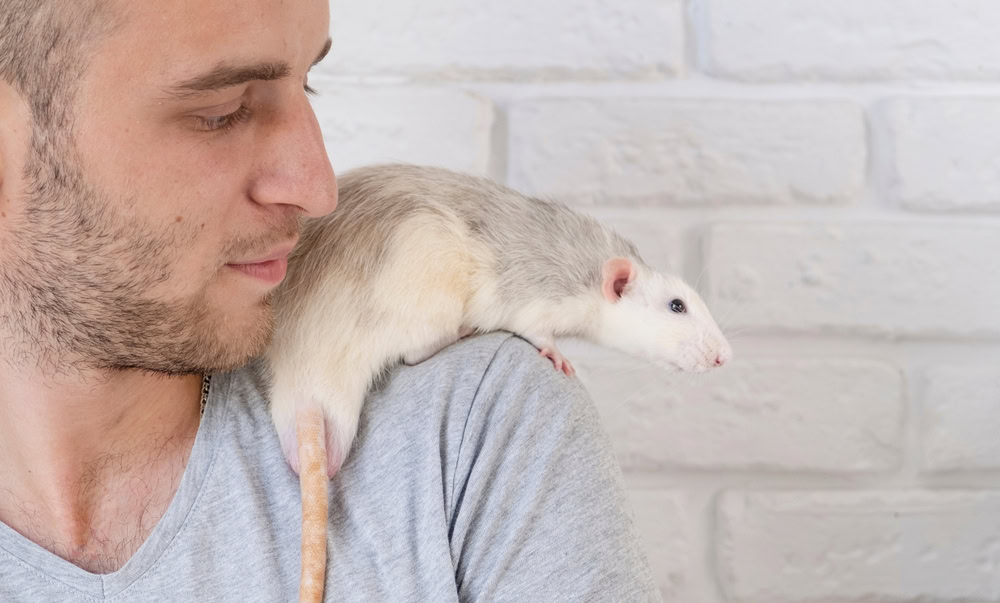
Vitamin C
Rats don’t have a dietary requirement for vitamin C, as they’re able to make this vitamin on their own. In fact, almost all pet rodents possess this ability – except for guinea pigs. However, it is believed that supplementing a rat’s diet with vitamin C might be beneficial for them in scenarios where their diets are otherwise deficient for some nutrients.2
However, simply supplementing vitamin C in a pet rat’s diet under the assumption that it might be beneficial for them isn’t a correct approach for a pet rat’s diet, as sometimes, excessive vitamin C can be detrimental to their health as well.3
Carbohydrates
Among the “big three” – carbohydrates, protein, and fats – fruits are classified as carbohydrates. This is because most of their calories come from the naturally occurring sugars (carbohydrates) they contain.
Rats do not have established nutritional requirements for carbohydrates. However, they likely do need some carbohydrates in their diet, because the lack of carbohydrates leads to poor growth and development.
It’s been shown that rats on a diet in which they derived 90% of their energy from fat and 10% from protein were unable to thrive and grow well 4. When carbohydrate-free diets containing 80% energy derived from fats and 20% from protein were fed, rats were capable of weight gain, but growth increased when the diet was supplemented with glucose (a carbohydrate). These results indicate that at least for growth, carbohydrates are beneficial for rats.
Rats seem to do best on the simplest carbohydrate (glucose), or other compounds which can be quickly broken down or converted to glucose. However, not all sugars are equally beneficial for rats. In diets which are well-balanced for rats, fructose and sucrose (which acts as a source of fructose) can lead to several abnormalities when compared to glucose. Chiefly, they’re problematic for a rat’s liver.
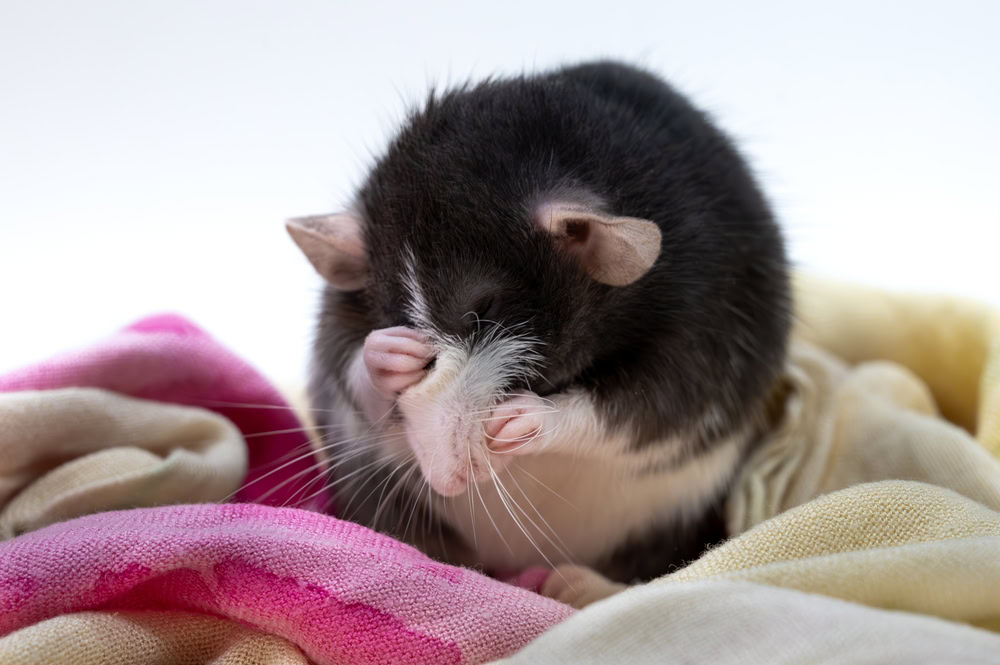
Watermelon & Rats
To assess the potential nutritional benefits of watermelon for rats, it’s important to look at its nutritional profile in greater detail; with specific attention paid to the carbohydrates found in this fruit.
- Total Energy: 30 kcal
- Water: 91.4 grams (g)
- Protein: 0.61 g
- Fat: 0.15 g
- Carbohydrate: 7.55 g
- Glucose: 1.58 g
- Sucrose: 1.21 g
- Fructose: 3.36 g
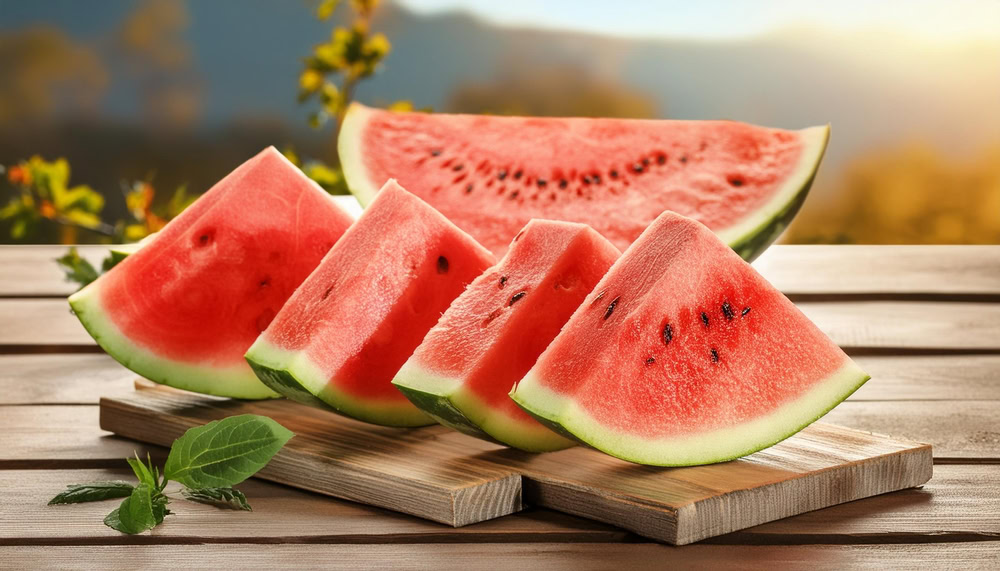
The information above, in conjunction with the research available on rats and their nutritional needs, leads to the conclusion that while watermelon is safe for rats to consume, it really isn’t healthy for them because most of the sugars found in watermelon (fructose) isn’t good for their long term health.

A Pet Rat’s Diet
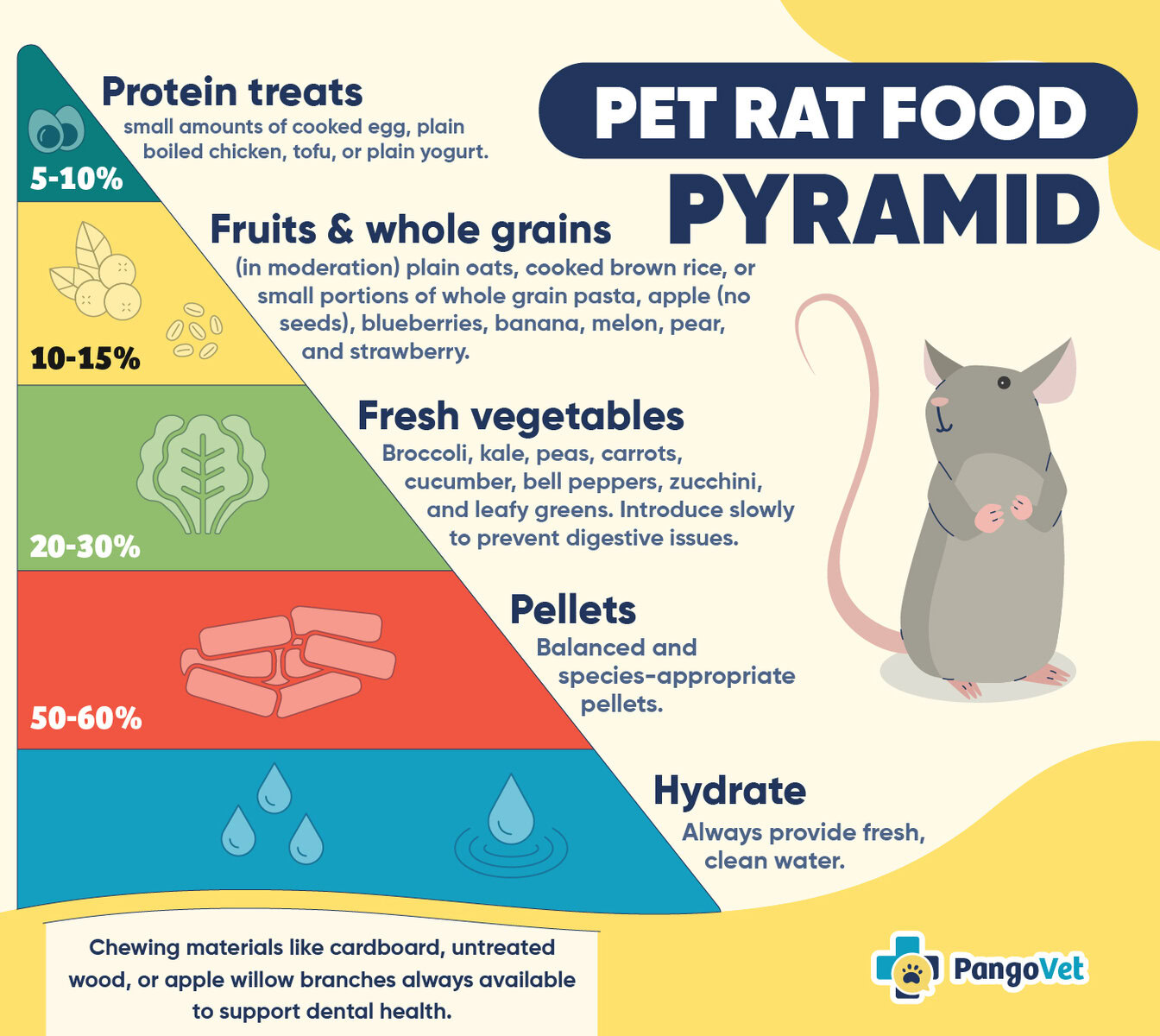
Rats are omnivorous opportunistic scavengers and are able to consume a wide variety of foods. In the wild, having a very broad nutritional profile is beneficial for a rodent; getting by on whatever they can get their hands on while avoiding predation gives them the best odds of success.
As pets though, a rat’s life is quite different. They don’t have to find their own food. As such, when given the option to choose from different foods, rats quickly pick and choose their favorites and will even readily overeat their favorite food. This becomes even more problematic when you consider that they don’t get nearly as much exercise as pets when compared to their wild counterparts.
To better control a pet rat’s nutritional intake, it’s best to offer them a diet composed primarily of pellets made specifically for them. Pellets are nutritionally more appropriate than most other food options and don’t allow your pet to pick and choose their favorite pieces. Pet rats should not be fed a pellet made for lab rats.
To promote scavenging and natural foraging, it’s best to scatter the pellets around your pet’s enclosure instead of placing them in one bowl. Their pellet diet can be supplemented with smaller fractions of seeds, grains, and safe-to-consume vegetables. Fruits should be considered a treat for your pet rat.
High fiber foods are advised as items to compliment a pellet diet, as these help rats with weight management problems. This makes food items such as hay very desirable in a pet rat’s diet as well.
The individual needs of a rat vary depending on their life stage (growth, maintenance, reproduction, gestation, lactation, etc.) and their overall health status. As such, it’s best to consult your veterinarian for a nutritional plan that would best suit your pet.
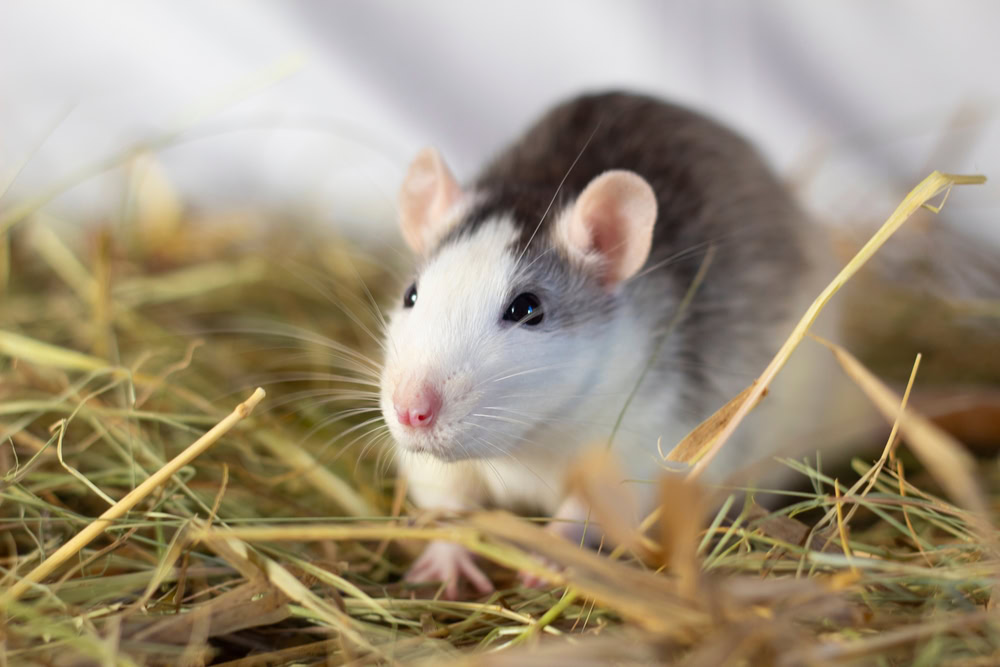
Final Thoughts
While wild rats will eat just about everything that they can find, if you own a pet rat, you want to give them a better diet. While watermelon certainly isn’t a problem, keep in mind that it isn’t particularly healthy or beneficial to them.
Before adding a new food to your rat’s diet, it’s best to consult your veterinarian to ensure that what you’re offering them is appropriate and beneficial for them.
Related Reads:
- How to Tell If Your Pet Rat Is Happy (11 Signs To Look For)
- Do Rats Make Good Pets? What You Need to Know!
- https://www.ncbi.nlm.nih.gov/books/NBK231925/#:~:text=A%20diet%20con%20taining%20at,not%20deficient%20in%20other%20nutrients.
- https://pubmed.ncbi.nlm.nih.gov/34101201/
- https://fdc.nal.usda.gov/fdc-app.html#/food-details/167765/nutrients
- https://fdc.nal.usda.gov/fdc-app.html#/food-details/167765/nutrients
- https://pubmed.ncbi.nlm.nih.gov/16311914/
